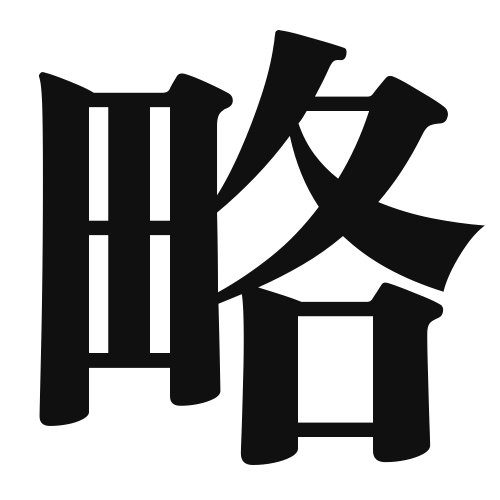1. Overview of Meaning
The kanji “略” (ryaku) generally means “abbreviation” or “to omit.” It conveys the idea of simplifying or shortening something, often used in contexts where brevity is preferred.
2. Formation and Radical
Formation of the Kanji: The kanji “略” is a compound character that combines elements to convey its meaning. It is formed from the phonetic component “彳” (which suggests movement) and the semantic component “各” (which means “each”). This combination reflects the idea of taking parts from each to create a shorter form.
Radical: The radical for “略” is “彳,” which is associated with movement or action.
3. Examples of Usage
Common Words and Phrases: Some frequently used words that include “略” are:
- 略語 (ryakugo) – abbreviation
- 略式 (ryakushiki) – informal or simplified style
Example Sentences in Daily Conversation:
- この文を略してもいいですか? (Kono bun o ryakushite mo ii desu ka?) – Can I abbreviate this sentence?
- 彼は略式の会議を提案しました。 (Kare wa ryakushiki no kaigi o teian shimashita.) – He proposed an informal meeting.
4. Synonyms and Antonyms
Similar Kanji: A similar kanji is “省” (shō), which also means “to omit” or “to reduce,” but it often carries a connotation of saving or conserving something.
Opposite Kanji: An antonym is “拡” (kaku), which means “to expand” or “to enlarge,” representing the opposite action of making something shorter or simpler.
5. Cultural and Historical Background
Relation to Japanese Culture: The concept of abbreviation is significant in Japanese culture, where efficiency and brevity are often valued in communication, especially in business and technology.
Proverbs and Idioms: One common idiom is “略して言えば” (ryakushite ieba), which means “to put it simply,” reflecting the cultural appreciation for concise expression.
